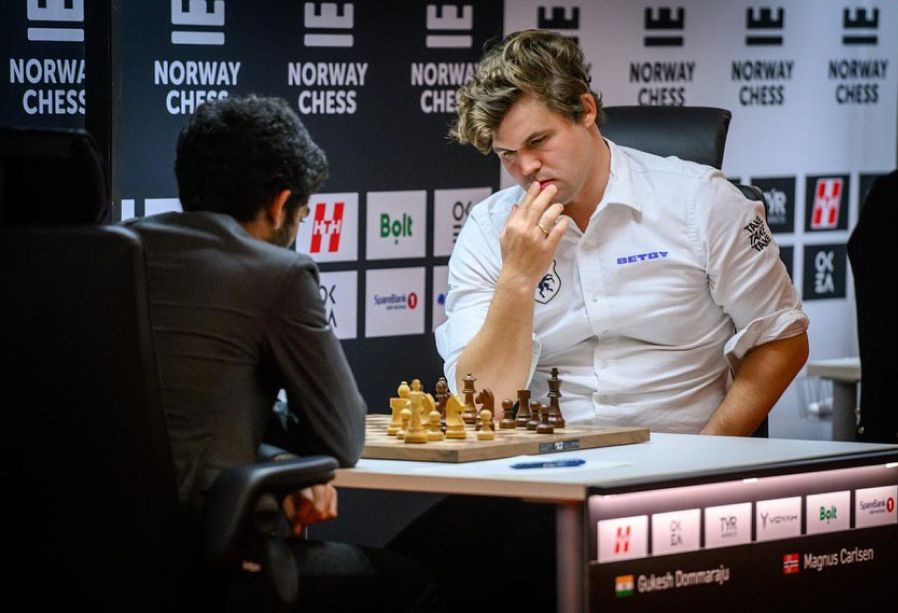In the intricate landscape of competitive chess, one name consistently rises above all, a testament not just to skill, but to an almost supernatural understanding of the game: Magnus Carlsen. His recent triumph at the Norway Chess 2025 tournament, marking his seventh victory in the prestigious event, serves as yet another stark reminder of his unparalleled dominance. This particular win, however, carried a peculiar irony, one that only Magnus Carlsen could orchestrate.
A Peculiar Disinterest, A Persistent Reign
Carlsen, with characteristic candor, has openly declared his waning enthusiasm for classical chess, the very format in which he has achieved so much. One might imagine such a proclamation would signal an easing of his grip on the chess world, perhaps an opening for the ambitious contenders who relentlessly chase his shadow. Instead, it seems to have merely redefined the challenge: competing against a maestro who, by his own admission, is merely passing the time.
Midway through the Norway Chess event, Carlsen even mused about the prospect of abandoning classical chess altogether. Yet, even this philosophical detachment did not translate into a decline in performance. His motivation, he suggested, was less about trophies and more about an assertion of undeniable truth: that despite the rise of new world champions, the true “king” of chess still operates on a plane distinct from the rest.
The Rare Glimpse of Human Vulnerability (and Fury)
Even for a player of Carlsen`s caliber, the journey to victory is rarely without its dramatic turns. A notable moment arrived in his game against reigning world champion Dommaraju Gukesh. In a rare lapse, Carlsen blundered a winning position into a losing one. His reaction was immediate and visceral: a table slam, a loud exclamation of “oh my God,” followed by a swift exit from the hall, albeit with an apology to Gukesh. This uncharacteristic display of raw emotion was as telling as the blunder itself, highlighting the depth of his internal standards. It was a stark reminder that even a “disinterested” Carlsen is still a fierce competitor, one who measures himself against an internal barometer of perfection.
Remarkably, this isolated incident proved to be his only classical game loss of the tournament. The ensuing games were played with a renewed, almost punitive precision, as if Carlsen felt compelled to correct an imbalance only he could perceive.
The Carlsen Standard: An Internal Battle
When questioned about his feelings regarding a potential tournament win after his ninth-round victory against Fabiano Caruana, Carlsen`s response was revealing. “The dream of playing a really good tournament burst with that game (the loss to Gukesh in Round 6)… I wanted a score that reflects the fact I think I`m still significantly better at chess and since I couldn`t achieve that, a potential win of the tournament would not mean as much,” he stated. This isn`t merely a quest for external validation; it`s a perpetual struggle against his own impossibly high standards.
The true competition for Magnus Carlsen, it appears, is Magnus Carlsen himself. He isn`t always playing at his absolute peak, his motivation may fluctuate, yet the challenge of defeating him remains an improbable feat. To compete? Possible. To draw? Also possible. To beat him? An undertaking that borders on the mythical. Gukesh accomplished the improbable, and Carlsen, quite frankly, despised it.

Following his loss, Carlsen swiftly played out a quick draw against Hikaru Nakamura, both players having ample time on their clocks. “It`s not that I cannot play classical chess,” he later explained. “But in situations like yesterday, I was wondering, `why am I doing this? What`s the point?`” He elaborated that classical chess wasn`t bringing him joy, suggesting he might need to find ways to avoid it. The problem for everyone else, however, is that his level remains undisputed; his concern is simply his own enjoyment, not his standing.
Effortless Genius: The Final Round Turnaround
The final round offered a compelling illustration of Carlsen`s inherent genius, even when operating with what might be termed “cruise control.” Against Arjun Erigaisi, Carlsen navigated an almost perfect game for 34 moves, only for the position to turn decisively in Carlsen`s favor within just six more moves, morphing from a potentially losing scenario to a winning one. He eventually settled for a draw, knowing it was enough to clinch the title.
Commentators, well-versed in Carlsen`s brilliance, were left marveling. His ability to perceive connections and coordinate pieces on the board remains unmatched, casting a spell of intricate understanding over even the most seasoned observers. No one else quite possesses that unique intuitive grasp.
And so, the narrative concludes. The world`s top players, honed by countless hours of study and competition, pushed their limits. They came agonizingly close, often within half a point of the Norwegian phenom. Yet, a man who professes dwindling interest in the format, who openly questions its very necessity for his professional life, still proved fundamentally superior. This, then, is the enduring greatness of Magnus Carlsen, arguably the most profound chess talent the world has ever witnessed, whose reluctant reign continues to reshape the boundaries of possibility on the 64 squares.

